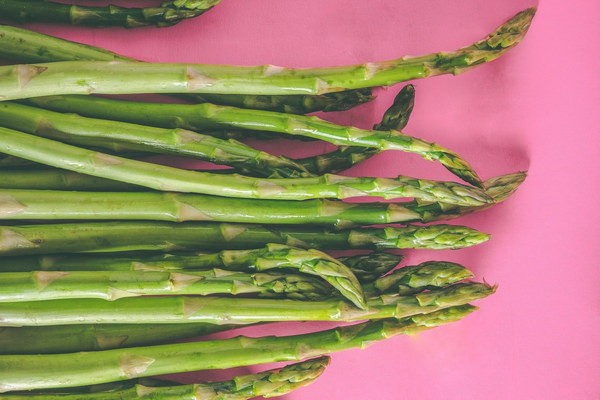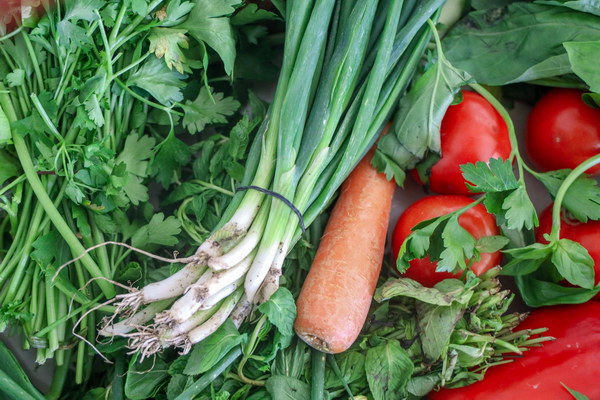Breath Easy A High-Protein Diet for Clearing Phlegm and Nourishing Your Lungs
In the fast-paced world we live in, respiratory health is often overlooked until we find ourselves struggling with coughs, phlegm, and other respiratory discomforts. A diet rich in high-protein foods not only supports overall health but can also play a significant role in clearing phlegm and nourishing your lungs. This article explores the benefits of a high-protein diet for respiratory health and provides a comprehensive guide to incorporating these foods into your daily meals.
Understanding the Connection Between Protein and Respiratory Health
Protein is an essential nutrient that plays a crucial role in the repair and maintenance of tissues throughout the body, including the respiratory system. When you consume high-protein foods, your body has the necessary building blocks to repair and strengthen the delicate tissues of the lungs. Additionally, proteins are involved in the production of antibodies, which help fight off infections that can exacerbate respiratory conditions.
Top High-Protein Foods for Respiratory Health
1. Chicken and Turkey: These lean meats are excellent sources of protein and essential amino acids that support lung health. Choose skinless chicken and turkey breasts to minimize saturated fat intake.
2. Fish: Fish, such as salmon, mackerel, and sardines, are rich in omega-3 fatty acids, which have been shown to reduce inflammation and improve respiratory function.
3. Eggs: Eggs are a versatile and nutritious protein source, offering a complete profile of amino acids. They can be prepared in a variety of ways to suit different tastes and dietary preferences.

4. Legumes: Beans, lentils, and chickpeas are not only high in protein but also packed with fiber and other nutrients that support overall health. Incorporate these into salads, soups, or as a side dish.
5. Tofu and Tempeh: Made from soybeans, tofu and tempeh are great plant-based protein sources that can be used in a variety of dishes, from stir-fries to sandwiches.
6. Milk and Dairy Products: Milk, cheese, and yogurt are good sources of protein and calcium, which is essential for maintaining healthy lungs. Opt for low-fat or fat-free options to minimize saturated fat intake.
7. Nuts and Seeds: Almonds, walnuts, chia seeds, and flaxseeds are great sources of protein and healthy fats that can help reduce inflammation in the body.
Incorporating High-Protein Foods into Your Diet
1. Start Your Day Right: Begin your day with a high-protein breakfast, such as scrambled eggs with vegetables, Greek yogurt with nuts, or a protein smoothie made with milk or a milk alternative, ice, and your favorite fruits.
2. Lunch Options: Prepare a lunch that includes a lean protein source, such as grilled chicken or tofu, alongside a salad filled with a variety of vegetables. Pair this with a side of legumes or a serving of quinoa for added protein.
3. Dinner Ideas: Experiment with fish, such as salmon or tilapia, and serve it with a side of steamed vegetables and a serving of brown rice. Alternatively, make a hearty bean soup or chili to enjoy throughout the week.
4. Snack Time: Snack on nuts, seeds, or Greek yogurt to keep your protein intake up throughout the day. A handful of almonds or walnuts can satisfy your hunger and provide a healthy dose of protein and healthy fats.
Conclusion
A high-protein diet can be a valuable tool in maintaining respiratory health and reducing symptoms of coughs and phlegm. By incorporating a variety of high-protein foods into your daily meals, you can support your body's ability to repair and strengthen lung tissue while also providing the necessary nutrients to combat respiratory infections. Remember to consult with a healthcare professional or a registered dietitian before making significant changes to your diet, especially if you have existing respiratory conditions or dietary restrictions. With the right approach, a high-protein diet can help you breathe easy and live a healthier life.









